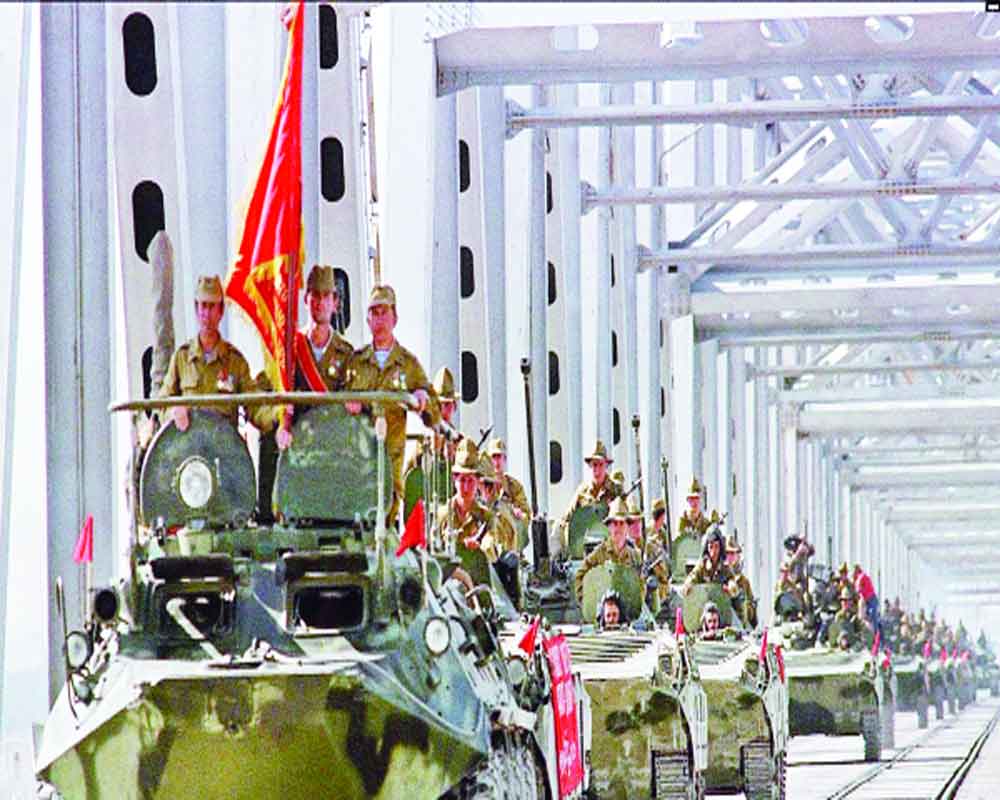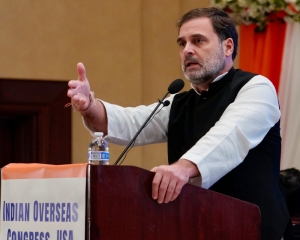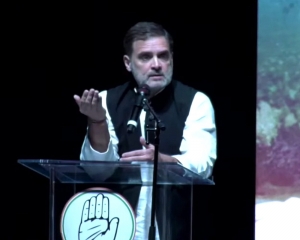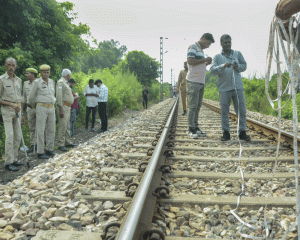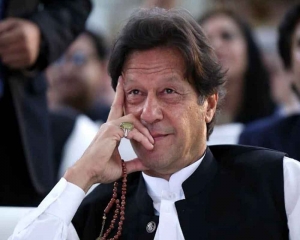The Soviet Union's botched attempt to poison Afghan leader Hafizullah Amin in 1979 set off a chain of events that reshaped the geopolitical landscape of Afghanistan
The failure of the poisoning attempt to kill Hafizullah Amin led Soviet officials to reconsider their strategy. Soviet doctors, unaware of the assassination plot, treated Hafizullah Amin for food poisoning at his palace. The KGB did not report this failed attempt in their confidential records, deeming it an ineffective method for removing Amin. Consequently, Soviet authorities concluded that a military operation was the only viable option. Karmal and his allies were forced to return to the Soviet Union as the plan was re-evaluated. Ultimately, a decision was made to execute Amin through a carefully planned military assault.The operation on December 25, 1979, saw Soviet special forces, disguised as Afghan soldiers, storm Darul Aman Palace, resulting in significant Soviet casualties, including over 100 special forces personnel and their commanding officer, Colonel Grigory Boyarinov.
The KGB concealed the death toll to protect its reputation, but Vasili Mitrokhin, a senior KGB archivist who defected to the UK in 1992, later exposed the grim details of the operation. His defection, revealing extensive Soviet espionage activities, marked a pivotal moment in the Cold War. The interplay of internal espionage and foreign intervention in Afghanistan, with ineffective Afghan intelligence and CIA-supported Mujahideen, highlighted the geopolitical manoeuvring that exacerbated Afghanistan's instability, including the assassination of Hafizullah Amin and the rise of Babrak Karmal, setting the stage for prolonged conflict.Karmal's rise to power after Amin's assassination marked a period of intensified Soviet control in Afghanistan. He sought to justify his regime by denouncing Amin as a CIA agent and framing himself as the rightful defender of the Soviet-backed revolution. Karmal's administration, supported by Soviet intelligence and military aid, aimed to stabilize the country but instead deepened its social and economic problems.
This period underscored the broader geopolitical struggle and the impact of external powers on Afghanistan's turbulent history.Taraki's Stalinist purge of the Afghan political party led to widespread imprisonment and execution, with some members exiled or appointed to distant posts. Karmal, who had been made the Afghan ambassador to Czechoslovakia, used his position to plot against Taraki. Faced with the threat of arrest or death if he returned to Afghanistan, Karmal sought asylum from the Czechoslovakian government. The Czechoslovak authorities, concerned about the diplomatic repercussions, consulted with the Soviet Union, which advised granting Karmal asylum and preventing his return to Afghanistan. This marked the start of Karmal’s complex political manoeuvring.After being granted asylum, Karmal and his family were relocated to a secret location near Kreislice, under constant surveillance by Czechoslovakia’s StB.
Despite a confirmed assassination plot against him, Karmal evaded capture by frequently relocating and maintaining Soviet contact. By December 1979, following Amin’s assassination, Karmal became Afghanistan’s leader with Soviet backing. His tenure, marked by increased instability and Soviet manipulation, saw him misinterpret domestic unrest as foreign interference and downplay Soviet military presence. Committed to Marxist ideologies, Karmal’s conflicts with parliament over religious issues highlighted his dedication to communism.
The Soviet intervention starting December 28, 1979, under Karmal's regime, worsened Afghanistan’s turmoil, leading to widespread devastation and secretive reporting of casualties, revealing internal KGB struggles.Karmal's leadership, heavily reliant on Soviet military support, ultimately proved ineffective in stabilising Afghanistan. The continuous conflict led to the rise of the Mujahideen, supported by the US and Pakistan, further destabilising the country. Karmal was replaced by Mohammad Najibullah in 1986, who continued to rule until 1992 when the Mujahideen took control of Kabul, marking the beginning of the first phase of Taliban rule. Karmal’s life ended in 1996 in Moscow, and his tenure is remembered as a period of profound strife and political manipulation in Afghan history.
This power struggle continues to harm Afghanistan. Mahmud Tarzi (1865–1933) noted that ‘the progress of a nation depends on its ability to move beyond ignorance and embrace knowledge and reform.’ He observed that while Europe advanced through education and modernization, the Muslim world remained entrenched in outdated traditions. Tarzi emphasized that intellectuals should guide their societies from darkness to modernity.
This transition from enlightenment to darkness accentuates a deeper issue rooted in Afghanistan's turbulent political history. The events following the 1973 coup, which brought the foreign intelligence agencies of the KGB, CIA, and ISI into Afghanistan’s political sphere, illustrate how external powers have long manipulated the country’s fate, contributing to its ongoing strife.The overthrow of Mohammad Zahir Shah in 1973 marked the beginning of a period of significant destabilisation in Afghanistan.
Zahir Shah, who had a nuanced understanding of Afghanistan’s needs and implemented substantial social reforms, was succeeded by Mohammad Daoud Khan. Despite Daoud Khan’s attempts to seek American assistance, the refusal of support set the stage for Soviet intervention, exacerbating the country’s instability. Zahir Shah’s return to Afghanistan after the collapse of the Taliban in 2001 symbolised a nostalgic yearning for stability and unity. However, his exclusion from significant political decisions by Hamid Karzai highlights the challenges of integrating historical figures into contemporary politics without disrupting the prevailing power dynamics.The failure of both the Soviet Union’s intervention and the subsequent U.S. involvement in Afghanistan underscores a profound lesson about the limitations of foreign military power in achieving lasting political stability. The Soviet Union’s reliance on sheer military might and neglect of social and political trust is mirrored by the U.S. and its allies’ inability to implement meaningful reforms.
The eventual resurgence of the Taliban and the disgraceful withdrawal of foreign forces, leaving behind modern weapons, epitomises the failure to address Afghanistan’s underlying issues. This pattern of short-term military solutions and inadequate attention to genuine structural reforms has led to repeated cycles of conflict and instability, reflecting a broader failure to understand and address the complex socio-political realities of Afghanistan.
External influences, notably from China and powerful Arab states, crucially affected Afghan politics during the Soviet-Afghan War. Amid the China-Soviet ideological rift, Mujahideen groups led by Ahmad Shah Massoud fiercely resisted both Soviet forces and the Pakistan-backed Taliban. Massoud’s declaration, “We will not be pawns in someone else's game, we will always be Afghanistan,” underlined his commitment to Afghan sovereignty. Henry Kissinger’s covert 1971 visit to China, aimed at undermining Soviet influence, marked a significant Cold War strategy shift.
Despite massive Soviet and U.S. investments, Afghanistan’s political instability persisted due to the lack of a coherent strategy to address its complex social and administrative issues. Ultimately, the failure of both superpowers to grasp Afghanistan's intricate social fabric and implement effective governance solutions led to prolonged instability. The U.S. and its allies’ focus on aligning with extremist factions, coupled with the Soviet Union’s pursuit of a monolithic socialist state, failed to address the real needs of the Afghan people. The resulting chaos not only perpetuated a cycle of conflict but also laid the groundwork for the rise of the Taliban. This historical narrative accentuates the profound consequences of using small nations as pawns in geopolitical games, raising pressing questions about the future of Afghanistan’s over forty-one million people under continued turmoil and social repression. The Taliban, ultimately, are not the sole symptom of the decades that Afghanistan plunged into an abyss. As a South Asian nation, Afghanistan’s future depends on proactive collaboration with neighbouring countries and strategic efforts to establish strong people-to-people connections, rather than succumbing to isolationism.
(The writer is a journalist and author. Views expressed are personal. Concluded)






